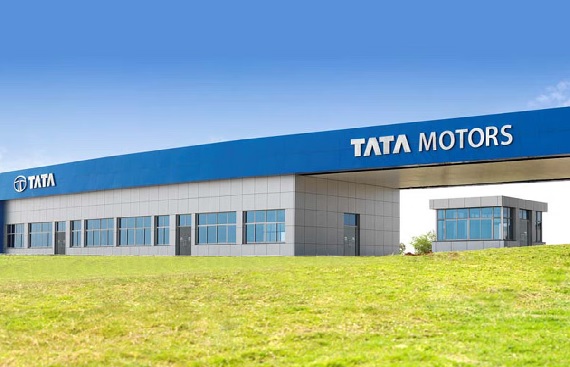Tata Motors Q3 net profit doubles to Rs 7,025 crore, beating estimates
By
siliconindia | Friday, 02 February 2024, 07:03:07 PM IST

Tata Motors has announced a significant increase in its consolidated net profit, reaching Rs 7,025 crore for the October-December quarter, marking a two-fold jump from Rs 2,957.71 crore the previous year. The boost is attributed to strong demand for both passenger and commercial vehicles in India, sustained growth in Jaguar Land Rover models, reduced raw material costs, implemented price hikes, and an improved product mix. The company reported a 24.9 percent year-on-year revenue surge to Rs 110,577 crore, compared to Rs 88,489 crore in the corresponding period last year, as stated in an official filing.
Tata Motors has surpassed analysts' predictions, with its net profit for the October-December quarter growing by 54 percent year-on-year (YOY) to reach Rs 7,025 crore. This outperformed the average estimate of Rs 4,547 crore from seven brokerage houses. The projections also anticipated a 22 percent YOY increase in revenue to Rs 1,08,169 crore. Tata Motors' earnings before interest, taxes, depreciation, and amortization (EBITDA) experienced a significant 42.5 percent YOY surge, reaching Rs 15,333 crore, and the operating margin expanded by 171 basis points to 13.94 percent. The revenue generated from the Jaguar Land Rover (JLR) business climbed to Rs 76,665 crore in the last quarter, compared to Rs 58,863 crore in the December 2022 quarter.
Tata Motors, a key entity within the Tata Group, one of India's top three conglomerates, holds a dominant position in the Indian commercial vehicle sector and consistently ranks among the top five passenger car brands in the country. The company places significant emphasis on international markets, operating automotive manufacturing and assembly facilities in South Africa and the U.K., and has a presence in over 170 countries. Established in 1945 as a producer of commercial vehicles, Tata Motors initially concentrated on manufacturing trucks and buses for the domestic market. The transition to becoming a passenger car manufacturer began in the latter part of the 1990s. The introduction of the Indica compact car in 1998 proved highly successful, marking a pivotal moment in Tata Motors' evolution into a prominent player in the passenger car industry.
Read More News :
PM Modi to launch NLC India's 2,400 MW power project in Odisha
Mukesh Ambani's Reliance to acquire over 50 percent stake in Disney India



